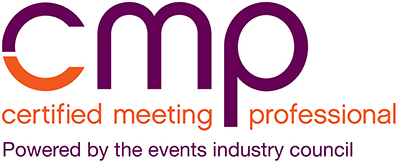Hiromi Murayama, CMP | PACIFICO Yokohama (Pacific Convention Plaza Yokohama)
![]() Print this Article | Send to Colleague
Print this Article | Send to Colleague
How many years have you been a CMP?
6 months
Where did you grow up?
I was born and raised in Chiba, Japan, just east of Tokyo, and I lived there until I moved to Yokohama, just south of Tokyo, for the position at PACIFICO.
What did you want to (or think you’d) be when you grew up?
I thought of working as a curator in art museums or galleries. I just had a vague idea of serving in the field of arts.
What was your educational field of study (college major or whatever, as applicable), and, if notably different from what you do, your how/why/story?
I majored in Japanese Literature and History of Art at the university and my field of study was Japanese Medieval Art. I started my career as an editor at a software company, which produced classical music DVDs. As a result of that software company’s merger into a record company, I happened to serve as an A&R (Artist & Repertoire) director being involved in many CD recordings and the video licensing of classical music. I was also in charge of the launch of the music school, which was a result of the fan base’s nurturing and the related events’ creation. It was only six years ago that I jumped into the meetings industry in a quest to produce the moments of inspiration instead of just manufacturing the goods.
What advice would you give, either to your younger self or to newer professionals now?
Action is worry's worst enemy. I would say to my younger self, “just try before worrying too much about the unseen future.”
What advice would you give to anyone preparing to take the exam?
I would recommend to visualise the actual planning process of the event (or the imaginary event) while reading through the prep materials.
When did you first hear about the CMP designation and what drew you to this certification?
I knew about the CMP from our company’s certification acquisition support programme, in which the CMP is listed as one of the recommended certifications to obtain. As I mentioned above, I am relatively less experienced in the industry. I expected the designation of CMP would give me a sense of confidence to survive in the meetings business, and by filling a knowledge gap through the preparation of the exam, to stand on the same stage as my industry peers.
What is the biggest life lesson you have learned during the pandemic?
My old friends, including the most unexpected one, have helped me a lot when I felt so lonely staying at home and struggling with new tasks during the pandemic. I realised that it’s good to ask for help when you need it. People around you will always lend you a hand.
What is the most memorable in-person experience you planned? What is the most memorable virtual event you have done so far?
I haven’t yet planned a full virtual event, although the 2nd ICCA Asia Pacific Chapter Summit held in December 2020 was a very impressive hybrid event and by far the most memorable in-person experience at the same time. After the long period of “we cannot decide anything yet” kind of planning phase in uncertainty, I was so moved to see the participants actually coming in the meeting room.
What was the last book you read/listened to?
“Sizing Up Consciousness: Towards an Objective Measure of the Capacity for Experience” by Marcello Massimini and Giulio Tononi.
At the ICCA AP Summit, we invited Dr. Juichi Yamagiwa, a world-renowned primatologist, as our opening keynote speaker. I was interested in what he had mentioned about the human brain. Namely, the brain has evolved as large as the modern human brain before the invention of language. So my question started from, “what distinguishes the human brain from that of other primates?” “What makes human communication possible?” And now it has come to, “what is actually consciousness?” This book explains plainly the integrated information theory proposed by Tononi himself. Although difficult in many aspects, it was a very exciting reading.
Who will be your dream keynote speaker at your event? Why?
I always thought I wanted to invite a Japanese tea master to our event. Tea Ceremony, I think, is the extreme expression of entertaining guests in a tremendously exquisite way. It seems to me the ultimate in hospitality.

